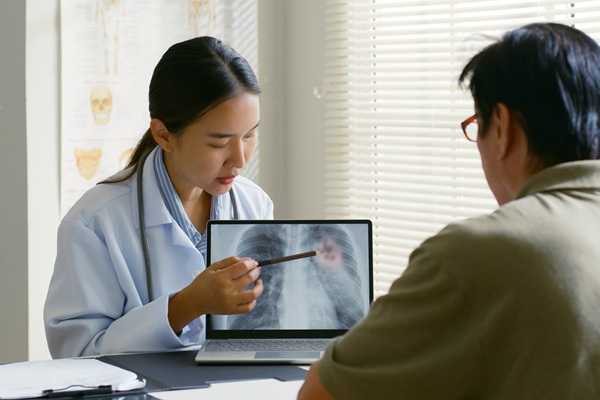5 Questions to Ask Your Cancer Doctor

A cancer doctor can help you deal with your condition. This healthcare professional can provide the right diagnosis and possible treatments. You can even play an important role in the creation of your treatment plan. Asking your oncologist the right questions can help you prepare for your treatment. Here are five questions to ask your cancer doctor on your consultation visit.
1. What is the main goal of the treatment?
It is important to know what the treatment goals are. The cancer doctor can explain that cancer treatments have two goals. One is to take out most or all cancer cells from the body. The other is to keep cancer from starting again later in life. Other goals are:
- To manage other conditions that accompany cancer (anxiety or insomnia)
- To manage common symptoms (pain)
- To start exercising
- To enhance lifestyle and diet
In some cases, getting rid of cancer is not the main or long-term goal. The cancer doctor may work to slow down the progression of the disease. Medical advances can even help patients manage some types of cancer. These improvements can help the patient live with the disease for many years.
2. What are the available treatments?
An oncologist can present a list of possible cancer treatments during the consultation. The patient will receive a full explanation for each of them. Some patients may need surgery. Others may need radiotherapy or chemotherapy. The cancer doctor must share what treatments will be suitable. This will allow the patient to prepare for the kind of life during the treatment period.
The cancer doctor should inform the patient about the available clinical trials for the specific type of cancer. These trials can give patients access to brand-new medications. Patients whose diseases often have undesirable outcomes can benefit from them. The patient will always be the major decision-maker when it comes to treatment. Seeking a second opinion or talking to the healthcare team will allow the patient to see the suitable treatments.
3. What is the stage and type of cancer?
This is a crucial question that any cancer patient must ask a cancer doctor. A patient who knows the stage and type of cancer can achieve more clarity about the situation. The information can also help lower any anxiety or fear. Receiving a cancer diagnosis often triggers fears of dying or death. Knowing the truth about the condition can put things in perspective.
A cancer doctor may not determine the true stage of cancer or if the disease has spread already. The diagnosis will need more testing or a biopsy to figure out the specific stage of cancer. Many types of cancer are curable or treatable. Understanding the cancer doctor’s thoughts about the type of cancer can help the patient make informed decisions about the treatment plan.
4. How can cancer treatment affect the patient’s quality of life?
Common side effects of cancer treatment include brain fog, hair loss, fatigue, and nausea. Modern chemotherapy is much better than chemotherapy two decades ago. Now, there are medications that can help with the side effects if the patient takes them before the therapy. There are also physical therapists, nutritionists, and psychologists that can help the patient feel better.
A support system can help the way the patient handles cancer. Going through doctor visits, treatments, and even the diagnosis itself can be disruptive to the patient’s routine. Family members, friends, and support groups can help the patient with them. There are mental health professionals, nurses, and payment apps that can make the treatment journey easier for the patient.
5. What is the possible chance for survival?
This can be a difficult question to ask a cancer doctor. The time the patient has left can be almost impossible to accept for some. Even so, it is important to know what the patient’s prognosis is. An oncologist may estimate a patient’s extent of recovery, life expectancy, as well as chances of getting cured. If the patient knows the diagnosis well, there is a chance for the patient to live a full life.
Asking your cancer doctor questions can provide more awareness about your cancer
Cancer is a complex disease. Knowing as much as you can about it can help you plan the things that you must do while you go through your treatments. Asking your cancer doctor the right questions can bring more facts to the table. You can then start to work with your doctor and treatment team to improve your symptoms.
Get more information about Lindenberg Cancer & Hematology Center in Marlton at https://lindenbergcancer.com.
Check out what others are saying about our services on Yelp: Cancer Doctor in Marlton, NJ.
Recent Posts
Lung cancer treatment has advanced significantly in recent years, allowing for more personalized approaches that improve outcomes and reduce unnecessary side effects. Personalized lung cancer treatment plans are developed based on several factors, including the type and stage of cancer, genetic markers, overall health, and the patient's unique response to specific therapies. These tailored strategies…
An ovarian cancer diagnosis can be scary, as this form of cancer often develops without noticeable symptoms in the early stages. As the disease progresses, it can become more difficult to treat, making early awareness important. Knowing the signs, understanding the diagnostic process, and learning about treatment options from an oncologist can offer patients hope…
Gynecological cancer treatments target cancers that affect the female reproductive organs, such as ovarian, uterine, cervical, vaginal, and vulvar cancers. Fortunately, there have been significant medical advances in cancer treatment that have greatly improved patient outcomes, allowing oncologists to adjust therapies to fit each patient's needs and overall health. These targeted treatments work better than…
Gastrointestinal cancer treatment is a broad and evolving field focusing on cancers affecting the digestive tract, including the esophagus, stomach, pancreas, liver, small intestine, colon, and rectum. Each area may involve different approaches based on the cancer's stage, location, and specific genetic factors. Oncologists often coordinate with surgeons, radiologists, and other specialists to create a…


